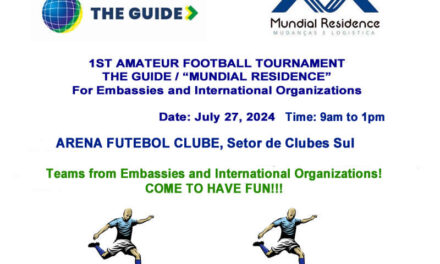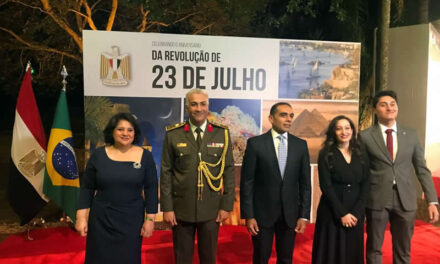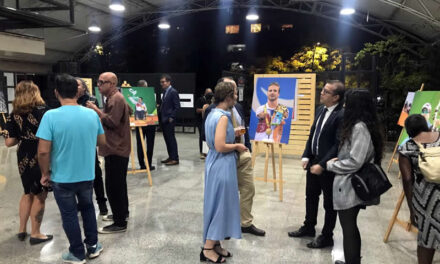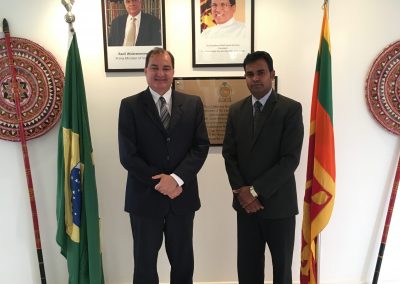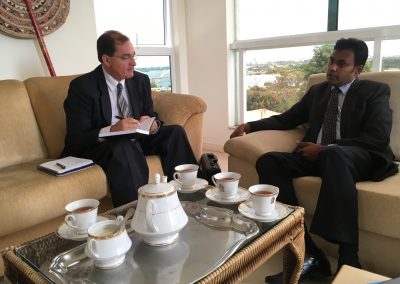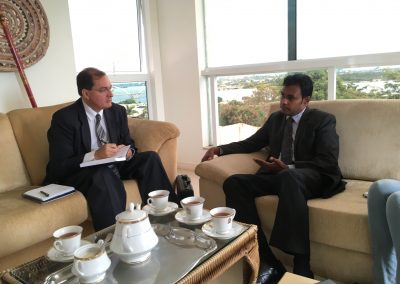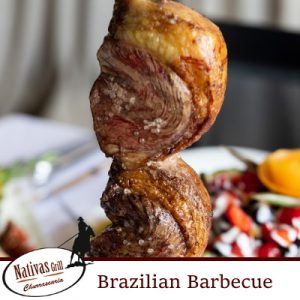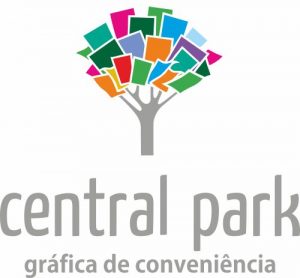On the occasion of the national date of Sri Lanka that was celebrated on February 5th, THE GUIDE interviewed the Chargé d’Affaires of the Embassy of Sri Lanka, Mr. Premanthilake Jayakody. The Executive Director of THE GUIDE Mr. Pedro Paulo Moreira and the Business Executive Mrs. Natália Lino were received in the social hall of the Embassy of Sri Lanka, located at SHIS QI 26 – Lago Sul, Brasília. See below our interview.
THE GUIDE: Thanks Mr. Jayakody for the interview. When did you arrive in Brazil?
Mr. Jayakody: I arrived in Brazil on July 15th, 2014.
THE GUIDE: Did you bring your family?
Mr. Jayakody: Yes, I brought my wife and two kids.
THE GUIDE: What are you thinking about your life in Brasília?
Mr. Jayakody: Brasília is an amazing place, because it is a planned city with easy access to all places. I like the city very much because it has a high quality of life, very good to raise kids.
THE GUIDE: What about the Brazilians? What do you think about our people?
Mr. Jayakody: Brazilians are very friendly, I see this everywhere I go. I see some difference among the Brazilians states, but generally they’re very nice. There’s a lot in common between our people. A peculiarity to say is that Sri Lanka was a colony of Portugal in 1505. We still have words in common with Portuguese as “vidro” (glass), “sapato” (shoes), “camisa” (shirt) and family names as “Silva”, “Fernando” e “Souza”.
THE GUIDE: Talking about Brazilians states, can you tell us the places you have already visited?
Mr. Jayakody: I’ve been in São Paulo, Rio de Janeiro, Minas Gerais, Bahia, Rio Grande do Sul, Goias, Amazonas, Parana, highlighting some places like Iguaçu Falls and the cities Manaus and Salvador.
THE GUIDE: Were you in other countries before coming to Brazil?
Mr. Jayakody: I came to Brazil straight from Sri Lanka, but I was working in Egypt from 2012 to 2013.
THE GUIDE: What are your main goals during your mission in Brazil?
Mr. Jayakody: My specialties are tourism, trade and investments
THE GUIDE: How are the trade relations with Brazil at the moment?
Mr. Jayakody: They’re very good. We’ve raised our exportations to Brazil from 44 million dollars from 2016 to 57 million in 2017. The results could be even better. Unfortunately, the economy in Brazil right now is not so good, but we already can see an improvement and there is good expectation for 2019. I see that there are projects just waiting the best time to start.
THE GUIDE: What are the main products you trade with Brazil?
Mr. Jayakody: Mainly we trade apparel, rubber products, coconut products.
THE GUIDE: How do you plan your business trips to Brazilians states?
Mr. Jayakody: We plan the trip preparing a visit program and consulting the Brazilian state governments about the possibility to create a business agenda. The Brazilian state’s government offices inform us the best time for our visit and then we meet and go together through the trade main topics.
THE GUIDE: How is the education system in Sri Lanka? Are there similarities?
Mr. Jayakody: In my country the education system is mainly public including the universities. The students start in the Ordinary Level and when they are 16 they do a national test of 10 subjects. The grades they achieve will take them to the Advanced Level. When they became 18, they do another test called Advanced Level Exam. Our educational system offer technical schools for those students who don’t go to the university. It’s a very competitive system.
THE GUIDE: What is the population in your country and which religion they follow?
Mr. Jayakody: Sri Lanka has a population of 21 million people. The majority of population is Buddhist. There are also other religions as Hinduism, Christianity and Islam.
THE GUIDE: In Brazil we have a national party called Carnaval, is there in Sri Lanka any national party similar to that?
Mr. Jayakody: We also have national events, some of them are religious. In the month of April we have the Sinhala – Hindu New Year. In May we have a huge religious event called Vesak. It’s a Buddhist celebration and even in Brasília it has already happened twice in the Buddhist Temple. This event is very colorful to celebrate the three main events in the life of the Lord Buddha: the birth, the enlightenment and the pass away. There’s another event, the Poya Day that celebrates the full moon every month. When we celebrated Vesak in Brazil there was food from many countries, like Japan, Nepal, among others.
Other event I’d like to highlight is a parade that happens in August for 15 days in the evening. These parades have the participation of elephants, carrying relics around town. This event attracts people from many places of the world.We have other religious events such as Deepawali, Thai Pongol and Ramadan. Sri Lankan Christians celebrate Christmas in December in a grand scale.
THE GUIDE: Talking about gastronomy, are there similarities with the Brazilian food?
Mr. Jayakody: Like in Brazil, we also have rice and beans separated in our dishes (laughs). We also have the barbecue, boiled vegetables. Otherwise there’s a little difference, our food is a little bit spicier, we use more pepper.
THE GUIDE: How’s the government system in Sri Lanka?
Mr. Jayakody: We have a parliamentary system. The parliamentarians are elected through a general election. There are 225 parliamentarians like “deputados” in Brazil. Prime Minister who is the head of the legislature is selected out these 225 parliamentarians. The executive consists of the president and the cabinet. The President is elected through a separate election for a Five-year-term. Ministers are selected from the 225 parliamentarians. , he’s the head of the executive. We have local government bodies also for which members are elected through elections. In Sri Lanka everybody that reaches 18 years old, can vote.
THE GUIDE: In Brazil, football is the main Sport. What’s the main Sport in Sri Lanka?
Mr. Jayakody: Cricket is the most popular game in Sri Lanka, we already won two world cups. Cricket was brought from the British, nowadays we have three kinds of Cricket games played in the country. I’d like to say that volleyball is the national passion.
THE GUIDE: Mr. Jayakody, it was a pleasure to be received in your Embassy, and we would like to thank you very much for this interview.
Mr. Jayakody: The pleasure is mine. I’m honored to be in Brazil in this special moment that our relations are growing. Thank you for your visit.

